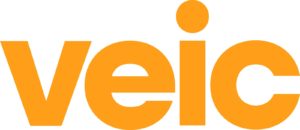For Immediate Release:
August 11, 2020
Pine Tree Village Cooperative
Carver, Massachusetts
Contact:
Colleen Preston – Cooperative Development Institute
(508) 951-0631
Alison Donovan – VEIC
(802) 540-7605
The Future of Manufactured Housing is Here!
Today, at Pine Tree Village Cooperative, a resident-owned manufactured housing community in Carver, Massachusetts, residents welcomed their first Zero Energy Modular (ZEM) home. The project represents a unique partnership between the public and private sector to advance quality housing that is eco-friendly in the time of climate change. Supporters of the project hope that this is the housing of the future for these communities. ZEM homes are factory-built modular homes which are installed on a permanent foundation. These homes are constructed to be highly efficient with the goal of providing homeowners with both low operating costs and reduced environmental impacts.
The project is made possible through a unique collaboration between the Cooperative Development Institute, VEIC, the Massachusetts Department of Energy Resources (DOER), E4TheFuture, PV Squared, and the Massachusetts Barr Foundation. Through the Zero Energy Modular Affordable Housing Initiative (the grant awarded to VEIC by DOER) ten homes will be installed across Massachusetts on both privately-owned land and in resident-owned manufactured housing communities. ZEM homebuyers receive grant funding from the program to help buy down the first cost of the home. Interested homebuyers are encouraged to visit the program through the website at: www.ze-mahi.com.
The ZEM home will be marketed, shown as a model, and then sold in place. With the assistance of CDI, board members and residents of Pine Tree Village will be trained as ambassadors and will show the home to those interested in the idea of purchasing a ZEM energy efficient residence. Ambassadors will also discuss this product with other resident owned cooperatives in Massachusetts with hopes the success of the project will help spur similar projects for the energy and long-term cost-saving benefit of other resident owned communities throughout the region.
Given the COVID-19 restrictions and health concerns, in person tours have been postponed, and a virtual video tour will be created to market the unit.
Colleen Preston, Cooperative Development Specialist with CDI, has been working with the residents and stakeholders to bring the project to fruition. “I’m very proud of everyone who contributed to making this possible. It really does take a community to build a community. For too long manufactured housing communities have suffered from bias. We are committed to changing that. Our communities are democratically controlled, as a community we are looking to the future as we welcome new housing that can help eliminate our carbon footprint.”
“We are so excited to have this home coming into our community.” said resident-owner and Acting President of the Pine Tree Village Board of Directors, Jeanne Seaton. “For years, we had a reputation for being somewhat of a rough place. We worked hard to fix that and now we are an up-and-coming place with people clamoring to live here. This Vermod home is exactly what we need to showcase our progress and our commitment to exciting, affordable housing.”
Although the ZEM home has a higher upfront cost than traditional manufactured homes, homeowners will say goodbye to high energy and utility bills and recoup the expense over time through energy-efficiency cost-savings. The unit installed at Pine Tree Village Cooperative, made by Vermont-based builder Vermod, utilizes state of the art technology to maximize energy efficiency. PV Squared, a New England based worker owned cooperative, is planning the solar installation in the coming months. “PV Squared is proud to continue its collaboration,” said PVSquared worker-owner Jon Child, “we’re proud to continuously collaborate on high
performance building projects like this one that utilize on-site solar electricity generation to off-set the energy needs of the building for the decades ahead.“
VEIC was awarded a grant to develop and administer the program, with programmatic support from CDI. “For VEIC, ZEM homes represent all that the green economy should be: affordable, accessible, and sustainable. The installation of the ZEM model home is the result of a truly unique collaboration between our partners in affordable housing, sustainable energy, and state government. We are grateful to the Massachusetts Department of Energy Resources for their leadership in this ambitious pilot and to the Barr Foundation and E4TheFuture for their financial support. It’s these cross-sector collaborations that will transform the ZEM housing market in Massachusetts,” said Alison Donovan, Senior Consultant at VEIC.
“Programs like the Zero Energy Modular Affordable Housing Initiative offer an opportunity to transform affordable housing for low and moderate-income Massachusetts residents,” said Department of Energy Resources Commissioner Patrick Woodcock. “Massachusetts continues to be a national leader in energy efficiency, and zero energy modular homes have the potential to serve populations that are disproportionately affected by high energy costs, while also contributing to an affordable clean energy future.”
Steve Cowell, president of E4TheFuture, also expressed his enthusiasm and support for the venture. “We are pleased to partner on this meaningful project that will be healthier for the planet and for the residents who will also save on monthly bills,” he said, “I hope this example will serve as a beacon for all who seek more equitable and affordable zero net energy homes.”
Generous support from the Barr Foundation has been integral to the project’s success. “Working with local manufacturers, VEIC has helped bring over 100 ZEM homes to Vermont, proving that this housing type can be green, affordable, and accessible to a broad range of home buyers,” said Mariella Puerto, Barr Foundation Climate Program Co-Director, “VEIC’s commitment to partnerships with local groups, including affordable housing developers has contributed to success in Vermont, Delaware, and now, Massachusetts.”
###
The Cooperative Development Institute (CDI) is the Northeast’s Center for cooperative business education, training, and technical assistance. We are an independent 501(c)3 Cooperative Development Center founded in 1994 by cooperative leaders across industry sectors to work with people in the Northeast to create cooperative businesses and networks that grow a prosperous, equitable economy. CDI’s New England Resident Owned Community (NEROC) program has helped develop 26 resident owned communities in Massachusetts, preserving over 3,220 units of affordable housing in the state. https://cdi.coop
VEIC is a sustainable energy company on a mission to generate the energy solutions the world needs. For over 30 years VEIC has been working with governments, utilities, foundations and businesses across North America to develop and deploy clean energy services that provide immediate and lasting change. VEIC’s full-service consulting and program implementation team is nationally recognized for developing innovative pilots and programs that optimize energy use, reduce energy burdens for low-income customers, and advance new technologies. VEIC administers three large-scale sustainable energy programs: Efficiency Vermont, Efficiency Smart, and the DC Sustainable Energy Utility (DCSEU). www.veic.org


